If you are planning to purchase a property in Singapore, understanding the history of housing loan interest rates can help you make informed decisions. Singapore’s housing loan interest rates have evolved over the years, and it is important to know how they have changed and what factors have influenced these changes.
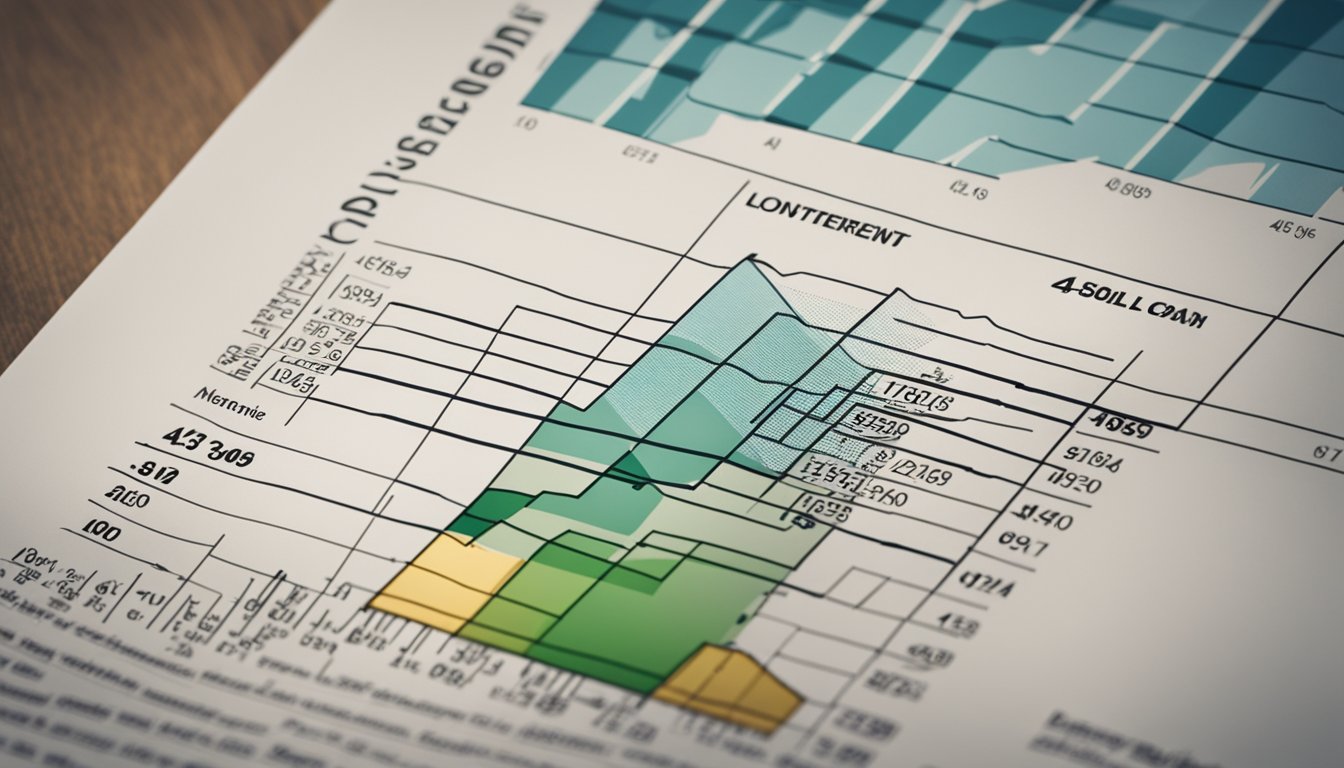
Key financial institutions such as the Monetary Authority of Singapore (MAS) and the Association of Banks in Singapore (ABS) have played a significant role in setting the benchmark rates for housing loans. The Singapore Interbank Offered Rate (SIBOR) and the Swap Offer Rate (SOR) are two of the most commonly used benchmark rates for housing loans in Singapore. It is important to understand how these rates work and how they affect your housing loan interest rates.
In this article, we will delve into the evolution of Singapore’s housing loan interest rates, the key financial institutions and benchmarks, the types of housing loans available, and the factors that influence interest rates. We will also discuss interest rate trends and predictions, practical information for borrowers, additional loan considerations, and property market dynamics. Understanding these topics can help you make informed decisions when it comes to your housing loan.
Key Takeaways
- Understanding the history of housing loan interest rates in Singapore can help you make informed decisions.
- Key financial institutions such as MAS and ABS play a significant role in setting benchmark rates for housing loans.
- Factors such as economic conditions, government policies, and global events can influence housing loan interest rates.
Evolution of Singapore Housing Loan Interest Rates

Historical Overview
If you’ve been keeping an eye on the Singapore housing market, you may have noticed that housing loan interest rates have been volatile in the past. However, over the years, the Singapore government has taken measures to stabilize the housing market and interest rates.
In the past, interest rates for housing loans in Singapore were generally higher than they are today. According to CEIC Data, the average housing loan rate for 15 years was 6.16% per annum from January 1983 to September 2018. The data shows that housing loan interest rates reached an all-time high of 12.42% per annum in January 1983 and a record low of 2.87% per annum in July 2013.
Impact of Global Financial Events
The global financial crisis in 2008 had a significant impact on interest rates in Singapore. In response to the crisis, the US Federal Reserve cut interest rates to near zero, which led to a decline in interest rates in Singapore. The Singapore government also took measures to stabilize the housing market by implementing a series of cooling measures, which included tightening loan-to-value ratios and increasing stamp duties.
In recent years, interest rates for housing loans in Singapore have been relatively stable. According to PropertyGuru Singapore, fixed-rate home loans were above 4% in 2022 but have since dipped. As of 14 December 2023, the most competitive mortgage package (in terms of the lowest interest rate offered in the first year) is a fixed-rate home loan at 3.25%.
Overall, the history of housing loan interest rates in Singapore has been volatile in the past, but the Singapore government has taken measures to stabilize the market and interest rates. Interest rates have been relatively stable in recent years, and it will be interesting to see how they trend in the future.
Key Financial Institutions and Benchmarks

If you are interested in Singapore’s housing loan interest rate history, it’s important to understand the key financial institutions and benchmarks that have played a role in shaping the market. Here are some of the most important ones:
Monetary Authority of Singapore (MAS)
The Monetary Authority of Singapore (MAS) is the central bank of Singapore. It is responsible for overseeing the country’s monetary policy, financial stability, and banking regulations. MAS also publishes key interest rate data, such as the Singapore Overnight Rate Average (SORA), which is used as a benchmark for many financial products in Singapore.
The Association of Banks in Singapore
The Association of Banks in Singapore (ABS) is a non-profit industry association that represents the interests of banks and other financial institutions in Singapore. ABS publishes the Singapore Interbank Offered Rate (SIBOR), which is a benchmark interest rate that reflects the average lending rates of banks in Singapore.
Singapore Interbank Offered Rate (SIBOR)
SIBOR is a benchmark interest rate that is used to price many financial products in Singapore, including housing loans. It is calculated based on the average lending rates of banks in Singapore, and is published by the Association of Banks in Singapore (ABS). SIBOR is typically quoted for various tenors, such as 1-month, 3-month, 6-month, and 12-month.
Singapore Overnight Rate Average (SORA)
SORA is a benchmark interest rate that is used to price many financial products in Singapore, including housing loans. It is calculated based on the average lending rates of banks in Singapore over a 24-hour period, and is published by the Monetary Authority of Singapore (MAS). SORA is replacing SIBOR as the benchmark rate for many financial products in Singapore.
Understanding these key financial institutions and benchmarks is essential if you want to understand the history of Singapore’s housing loan interest rates. By keeping an eye on these institutions and their actions, you can gain valuable insights into how the market has evolved over time.
Types of Housing Loans in Singapore

If you’re planning to buy a house in Singapore, you’d probably need to take up a housing loan (also known as a mortgage loan or home loan) to finance it. Housing loans in Singapore can be broadly classified into two categories: HDB loans and bank loans.
HDB Loans
HDB loans are offered by the Housing Development Board (HDB) to eligible Singaporeans and Permanent Residents (PRs) who are buying a new or resale HDB flat. These loans have a fixed interest rate, which is pegged at 0.1% above the prevailing CPF Ordinary Account (OA) interest rate. As of 2024, the HDB loan interest rate is 2.6% per annum.
Bank Loans
Bank loans are offered by various banks and financial institutions in Singapore. These loans can either have a fixed or floating interest rate, and the interest rates can vary depending on the bank and the loan package you choose.
Fixed Rate Packages
Fixed rate packages offer a fixed interest rate for a certain period, usually between 1 to 5 years. This means that your monthly repayments will remain the same during the fixed rate period, regardless of any changes in the market interest rates. After the fixed rate period ends, the interest rate will switch to a floating rate, which is usually pegged to the Singapore Interbank Offered Rate (SIBOR) or the Swap Offer Rate (SOR).
Floating Rate Packages
Floating rate packages offer a variable interest rate, which can go up or down depending on the market conditions. These loans are usually pegged to the SIBOR or the SOR, and the interest rates can be reviewed every 3 to 6 months. Floating rate packages can be further categorised into board rate packages and SIBOR/SOR packages.
Overall, choosing the right housing loan package in Singapore can be a daunting task, but with the right research and guidance, you can find a loan that suits your needs and budget.
Factors Influencing Interest Rates
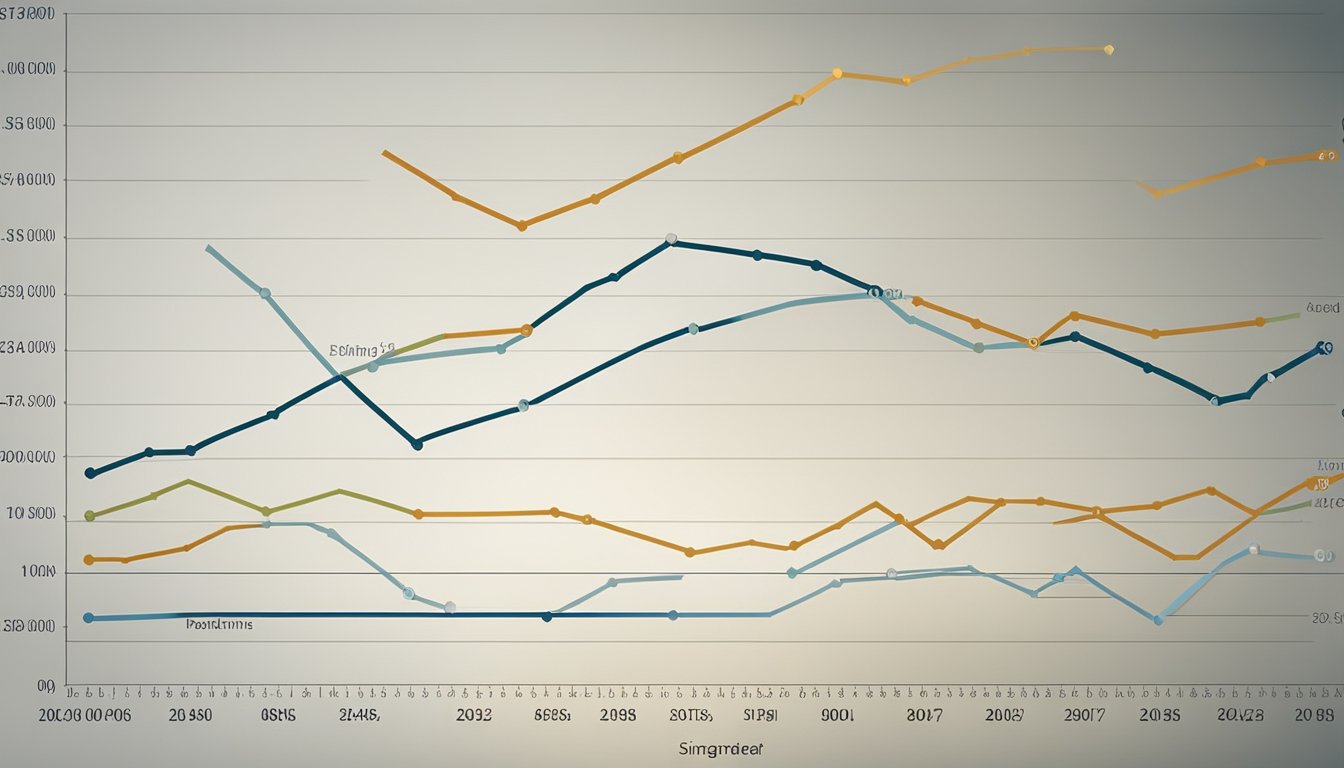
If you are interested in Singapore’s housing loan interest rate history, it is important to understand the factors that influence interest rates. Several factors can affect interest rates, including monetary policy, liquidity, inflation, currency trends, and US Federal Reserve decisions.
Monetary Policy and Liquidity
Monetary policy refers to the actions taken by a central bank to manage the money supply and interest rates in the economy. When the central bank increases the money supply, it can lead to lower interest rates. Conversely, when the central bank reduces the money supply, it can lead to higher interest rates. Liquidity, on the other hand, refers to the availability of credit in the economy. When there is more liquidity, interest rates tend to be lower, and vice versa.
Inflation and Currency Trends
Inflation refers to the rate at which the prices of goods and services in the economy are increasing. When inflation is high, interest rates tend to be higher as well. This is because lenders need to charge higher interest rates to compensate for the decrease in purchasing power that inflation causes. Currency trends can also affect interest rates. For example, if the Singapore dollar is weakening against other currencies, interest rates may need to be raised to attract foreign investment and prevent capital outflows.
US Federal Reserve Decisions
The US Federal Reserve plays a significant role in global interest rates. This is because the US dollar is the world’s reserve currency, and many countries peg their currencies to the US dollar. When the Federal Reserve raises interest rates, it can lead to higher interest rates in other countries as well. Conversely, when the Federal Reserve lowers interest rates, it can lead to lower interest rates in other countries.
In summary, several factors can influence Singapore’s housing loan interest rates, including monetary policy, liquidity, inflation, currency trends, and US Federal Reserve decisions. Understanding these factors can help you make informed decisions when it comes to taking out a housing loan in Singapore.
Interest Rate Trends and Predictions

Analysing Past Trends
Singapore’s housing loan interest rates have fluctuated over the years, with various factors affecting the rates. One of the most significant benchmarks used to determine the interest rates is the Singapore Overnight Rate Average (SORA). According to historical data, the interest rate for a 15-year housing loan in Singapore averaged 6.16% per annum from January 1983 to September 2018. The rate reached an all-time high of 12.42% per annum in January 1983 and a record low of 2.87% per annum in July 2013 [1].
In recent years, the interest rates for housing loans in Singapore have been relatively low. For instance, in December 2023, the most competitive mortgage package had a fixed interest rate of 3.25% per annum in the first year [2]. However, it is essential to note that the interest rates are subject to change based on various factors, including inflation rates, economic growth, and government policies.
Predictive Research and Analysis
Research and analysis have shown that the interest rates for housing loans in Singapore are likely to increase in the coming years. According to experts, the US interest rates peaked at 4.75%, and the Federal Reserve rates might touch 5.1% [3]. The experts also predict that the Federal Reserve rates may increase to 5.1% and then decrease to 4.1% in 2024 and further down to 3.1% by 2025.
Furthermore, the Singapore Overnight Rate Average (SORA) is another benchmark used to determine the interest rates for housing loans in Singapore. According to historical data, the SORA has been relatively stable over the years, with some fluctuations. However, research has shown that the SORA is likely to be replaced by the Singapore Overnight Rate (SOR) as the new benchmark for interest rates in Singapore. This change is expected to take place in the coming years, and it may impact the interest rates for housing loans in Singapore [2].
In conclusion, the interest rates for housing loans in Singapore have fluctuated over the years, and various factors have affected them. While the interest rates have been relatively low in recent years, research and analysis suggest that they are likely to increase in the coming years. It is essential to keep track of the trends and predictions to make informed decisions regarding housing loans in Singapore.
References:
- Singapore Housing Loan Rate for 15 Years: 10 Finance Co Average – CEIC Data
- Will Mortgage Rates in Singapore Go Down in 2024? – PropertyGuru Singapore
- 2024 Outlook: When Will Mortgage Rates in Singapore Drop?
Practical Information for Borrowers

If you are planning to take out a housing loan in Singapore, or if you already have one, it is important to stay informed about the interest rate landscape. Here are some practical tips that can help you make the most of your borrowing experience.
Refinancing Advantages
Refinancing is a process where you take out a new loan to pay off an existing one. This can be a good option if you want to lower your monthly payments, reduce your interest rate, or change the terms of your loan. Refinancing can also help you consolidate your debts, which can simplify your finances and save you money in the long run.
Before you decide to refinance, it is important to do your research and compare the different options available to you. Look for lenders who offer competitive interest rates, flexible repayment terms, and low fees. You can also talk to a mortgage expert who can help you evaluate your options and guide you through the process.
Home Loan Comparison
When you are shopping for a home loan, it is important to compare the different options available to you. Look for loans that offer low interest rates, flexible repayment terms, and reasonable fees. You can also use online tools and calculators to compare different loans and see how they stack up against each other.
When comparing loans, pay attention to the Annual Percentage Rate (APR), which includes both the interest rate and the fees associated with the loan. The APR can give you a better sense of the true cost of the loan and help you make an informed decision.
Mortgage Experts’ Advice
If you are new to the home loan market, or if you are unsure about your options, it can be helpful to talk to a mortgage expert. A mortgage expert can help you understand the different types of loans available, the pros and cons of each option, and the factors that can affect your interest rate.
When choosing a mortgage expert, look for someone who is experienced, knowledgeable, and trustworthy. You can also ask for referrals from friends, family, or colleagues who have gone through the home loan process before.
By following these tips, you can make informed decisions about your housing loan and take advantage of the best rates and terms available to you.
Additional Loan Considerations
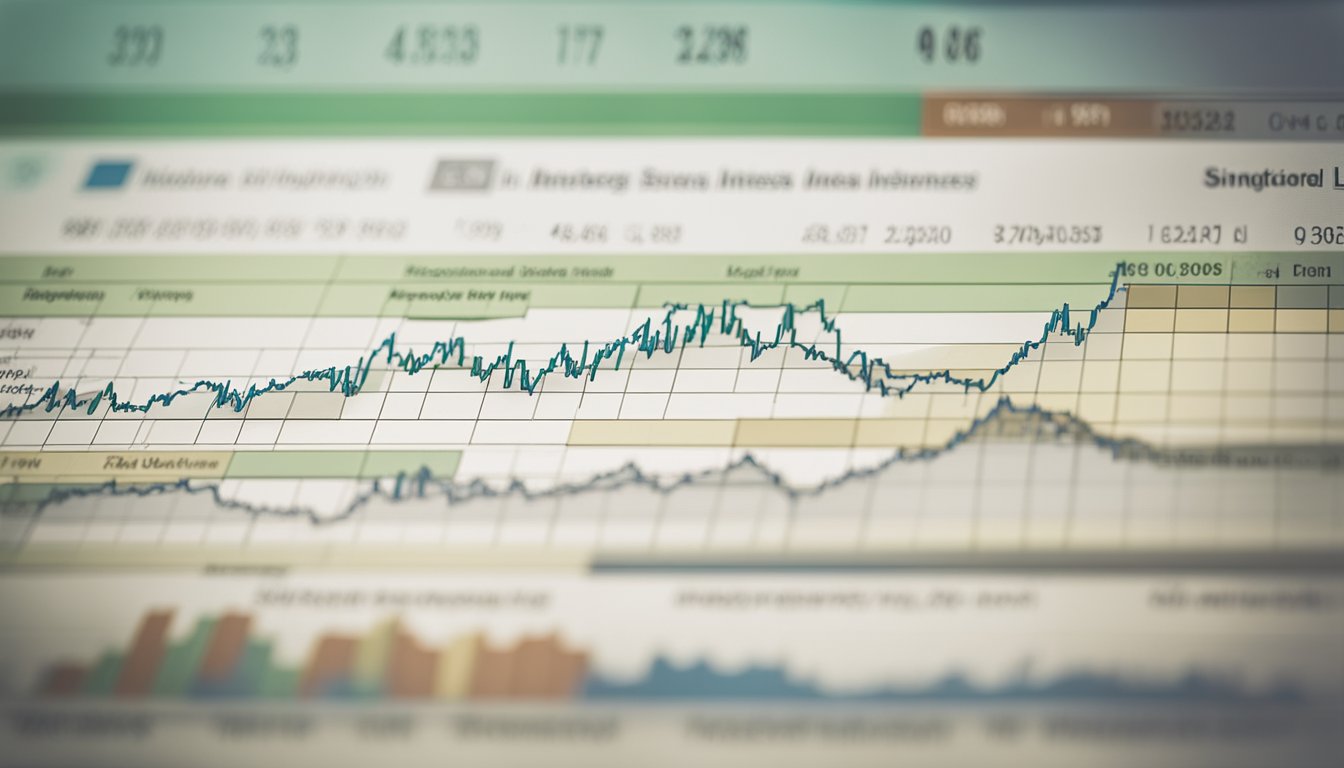
When considering a housing loan, there are additional factors to keep in mind beyond just the interest rate. Here are a few key considerations to keep in mind:
Bridging Loan Options
If you are selling your current home and buying a new one, you may need a bridging loan to cover the time between when you sell your old home and when you can move into your new one. Bridging loans typically have higher interest rates than regular housing loans, so it’s important to factor this into your overall budget. You should also consider the repayment terms of the bridging loan, as well as any fees or penalties associated with early repayment.
Lock-In Periods and Free Conversion
Some housing loans may come with a lock-in period, which means that you are required to keep the loan for a certain amount of time before you can pay it off or switch to a new loan. During the lock-in period, you may also be subject to penalties if you make early repayments or switch to a new loan. On the other hand, some loans may offer free conversion, which means that you can switch to a new loan without incurring any penalties or fees. It’s important to carefully consider the terms of your loan and weigh the benefits and drawbacks of a lock-in period versus free conversion.
Overall, it’s important to carefully consider all of the terms and conditions of your housing loan before making a decision. By taking the time to research and compare different loans, you can ensure that you find the best loan for your needs and budget.
Property Market Dynamics
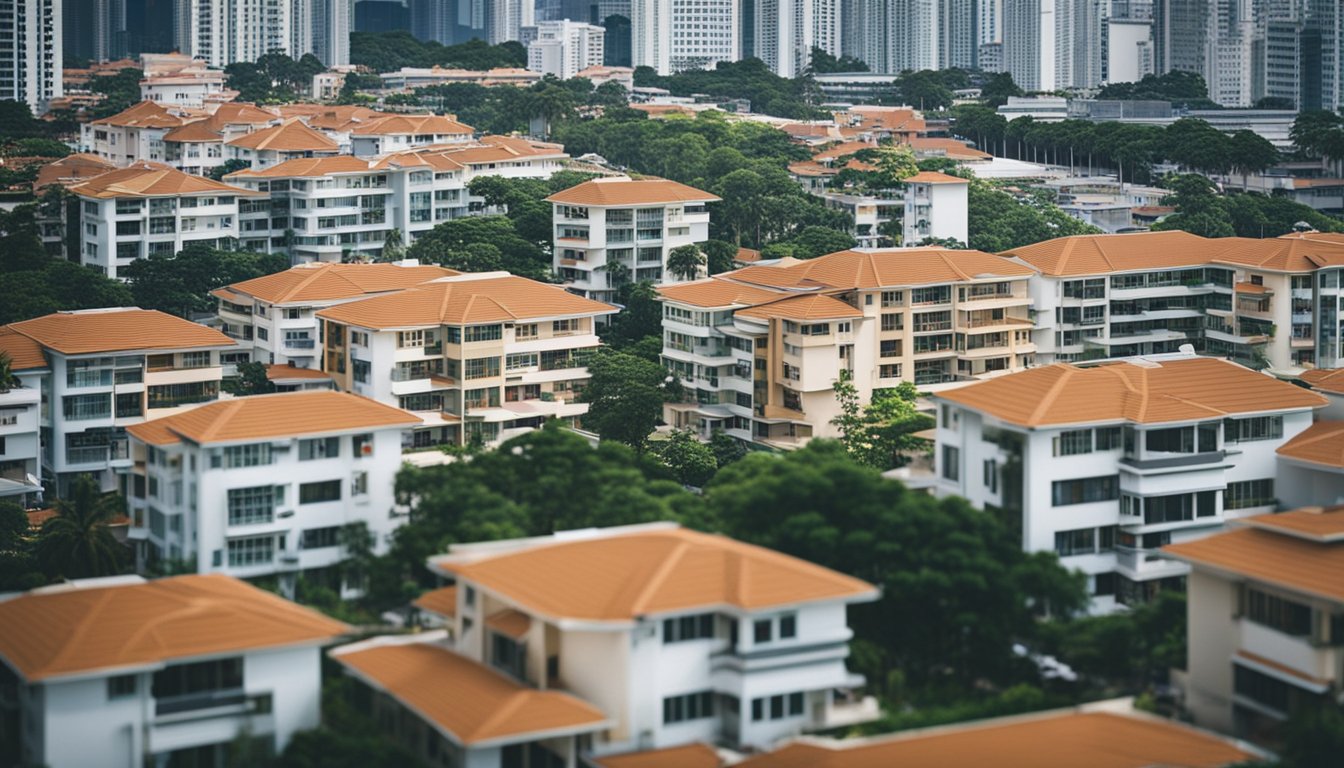
Are you interested in buying a property in Singapore? The dynamics of Singapore’s property market can be complex, but understanding them is crucial to making informed investment decisions. In this section, we will explore the relationship between property prices, loan amounts, and investment portfolio development.
Property Prices and Loan Amounts
The property market in Singapore is highly regulated, and the government has implemented several measures to keep prices stable. One of these measures is the Total Debt Servicing Ratio (TDSR), which limits the amount of debt a borrower can take on relative to their income. Additionally, the Loan-to-Value (LTV) ratio limits the amount of money a bank can lend a borrower to buy a property. The LTV ratio varies depending on the type of property and whether the borrower is a Singaporean citizen or a foreigner.
Over the years, property prices in Singapore have fluctuated in response to market conditions. From 2010 to 2013, property prices rose rapidly, leading to concerns about a property bubble. In response, the government implemented several cooling measures, including higher stamp duties and tighter loan-to-value ratios. These measures helped to stabilise property prices and prevent a housing bubble.
Investment Portfolio Development
Investing in property can be a smart way to diversify your investment portfolio. However, it is important to consider the risks and benefits of investing in property compared to other asset classes. Property investments can provide stable rental income and long-term capital appreciation, but they can also be illiquid and require significant upfront costs.
When developing your investment portfolio, it is important to consider your risk tolerance, investment goals, and time horizon. Property investments may be suitable for investors with a long-term investment horizon and a higher risk tolerance. However, investors with a shorter time horizon or a lower risk tolerance may prefer to invest in other asset classes, such as stocks or bonds.
In conclusion, understanding the dynamics of Singapore’s property market is crucial to making informed investment decisions. By considering factors such as property prices, loan amounts, and investment portfolio development, you can develop a well-rounded investment strategy that aligns with your investment goals and risk tolerance.
Understanding Mortgage Rates

If you are planning to buy a house in Singapore, you will most likely need to take out a mortgage. A mortgage is a loan that you take out to buy a property, and it is usually paid back over a period of 15 to 30 years. The interest rate that you pay on your mortgage is one of the most important factors to consider when choosing a mortgage. Here are some things you need to know about mortgage rates in Singapore.
Mortgage Interest Rates Fluctuation
Mortgage interest rates in Singapore can be either fixed or floating. Fixed interest rates remain the same throughout the loan period, while floating interest rates fluctuate based on the market conditions. Singapore mortgage interest rates have been fluctuating over the years. According to CEIC Data, the average housing loan rate for 15 years has ranged from 2.87% in July 2013 to 12.42% in January 1983.
From 2014 to 2016, housing loan interest rates in Singapore gradually increased by an average of 0.20% annually, and from 2016 onwards, mortgage rates started to rise quite aggressively with major banks in Singapore revising their home loan interest rates more frequently. If you are planning to take out a mortgage, it is important to keep an eye on the market conditions and interest rate trends.
Comparison of Fixed and Floating Interest Rates
When choosing a mortgage, you need to decide whether you want a fixed or floating interest rate. Fixed interest rates offer stability and predictability in monthly mortgage payments, shielding you from market fluctuations. However, fixed interest rates are usually higher than floating interest rates.
Floating interest rates are usually lower than fixed interest rates, but they are subject to market fluctuations. If interest rates rise, your monthly mortgage payments will increase. On the other hand, if interest rates fall, your monthly mortgage payments will decrease.
Before you choose between fixed and floating interest rates, you need to consider your financial situation and risk tolerance. If you prefer stability and can afford higher monthly payments, a fixed interest rate may be the better option for you. If you are willing to take on more risk and want to take advantage of lower interest rates, a floating interest rate may be the better option.
Frequently Asked Questions
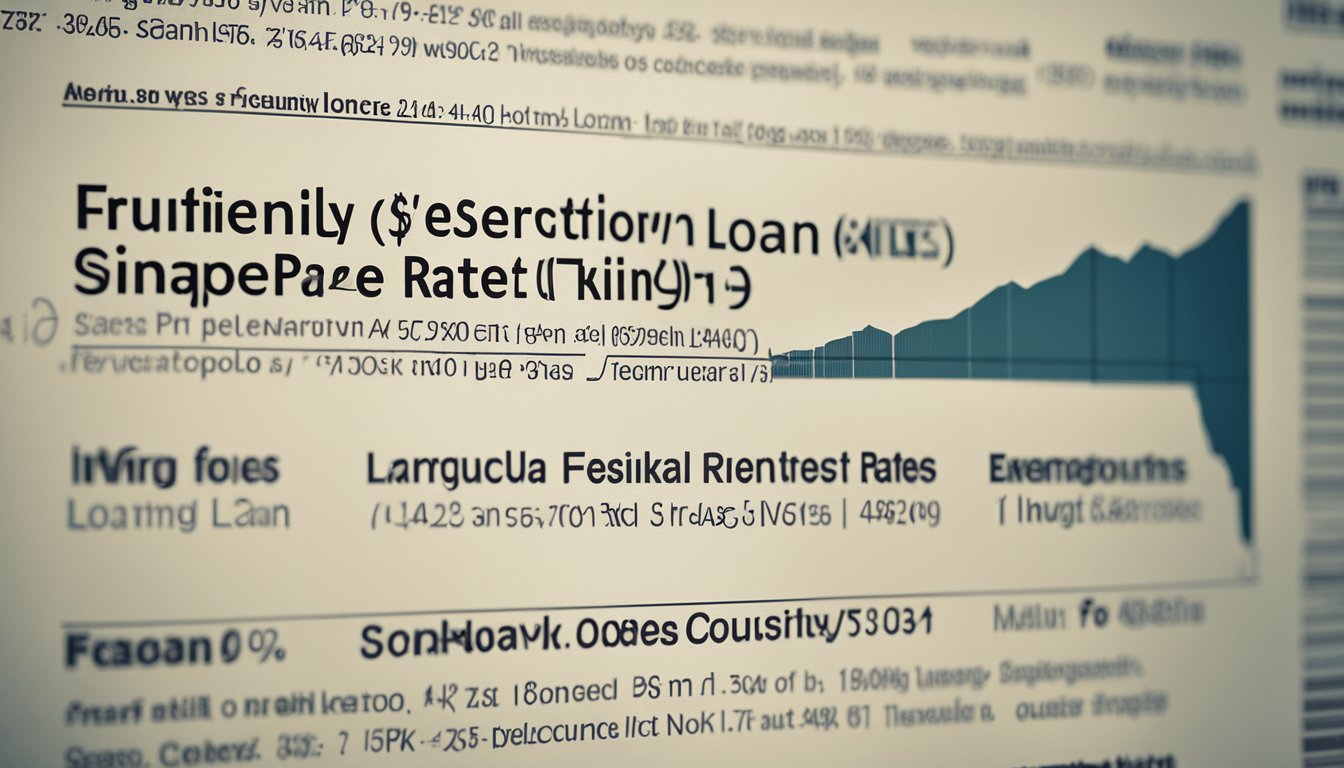
What’s the peak mortgage rate ever recorded in Singapore’s history?
The highest mortgage rate ever recorded in Singapore was 12.45% per annum in January 1983. Since then, the mortgage rate has fluctuated and has been influenced by various factors such as the global economic climate, government policies, and market trends.
Can you show me a graph detailing the historical trends of housing loan rates in Singapore?
Yes, there are several graphs available online that detail the historical trends of housing loan rates in Singapore. One such graph is available on the HousingLoanSG website, which shows the historical trends of SIBOR and SORA rates from 1974 to the present day.
Where can I find a comprehensive chart of Singapore’s SIBOR rates over the years?
You can find a comprehensive chart of Singapore’s SIBOR rates over the years on the HousingLoanSG website. The chart shows the SIBOR rates from 1986 to the present day and is updated daily.
How has the HDB loan interest rate fluctuated in the past?
The HDB loan interest rate has fluctuated over the years, influenced by various factors such as the global economic climate, government policies, and market trends. The interest rate has been relatively stable in recent years, hovering around 2.6% per annum.
Could you provide the historical lending rates for Singapore’s property market?
Historical lending rates for Singapore’s property market are available on the CEIC Data website. The data shows the average housing loan rate for 15 years from 1983 to 2018, with a high of 12.42% pa in January 1983 and a low of 2.87% pa in July 2013.
What are the current trends in the 5-year SOR rate in Singapore?
The current trend in the 5-year SOR rate in Singapore is downwards. The rate has been declining since 2019 and is currently hovering around 1.6% per annum. This trend is influenced by various factors such as global economic conditions, government policies, and market trends.

